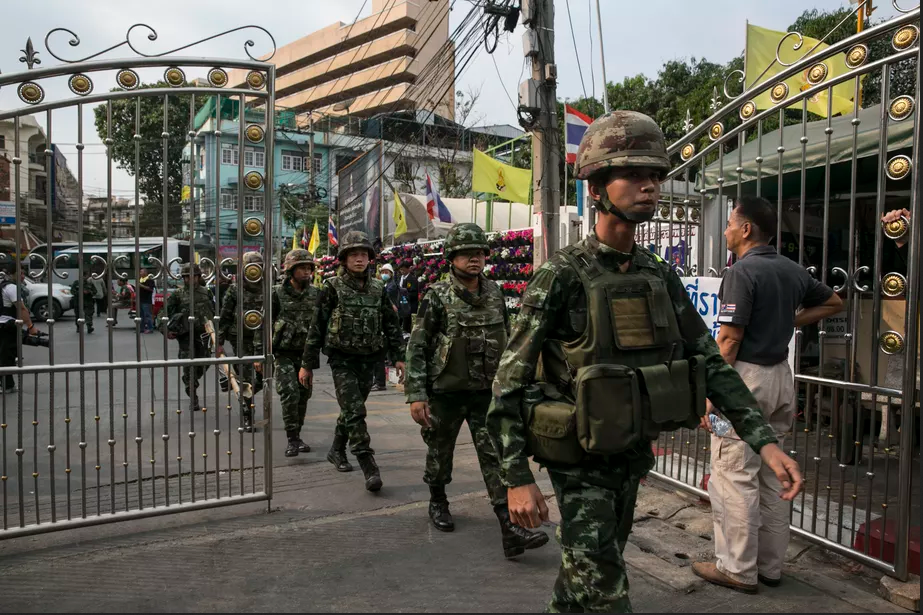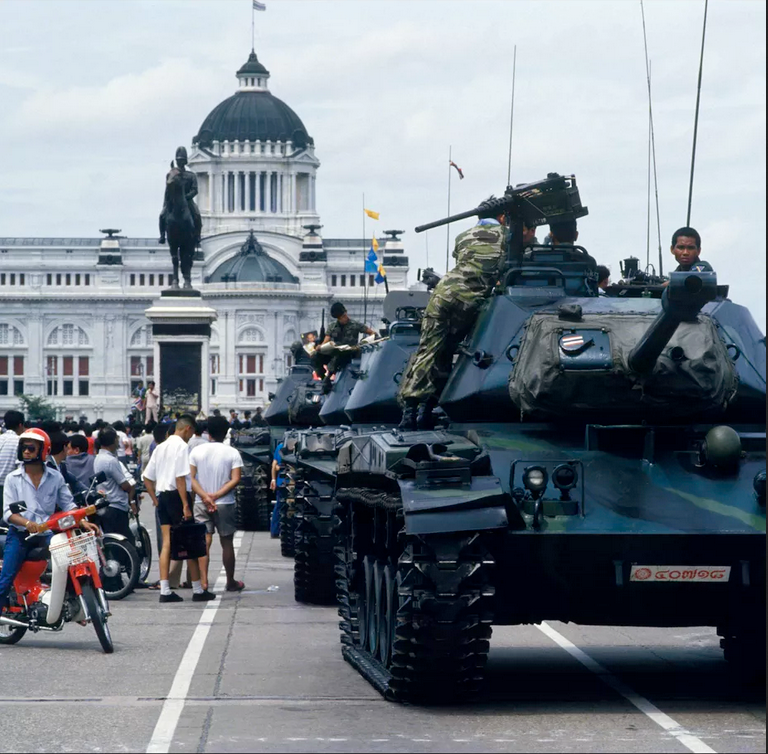
Recent speculation in the press and on social media has reminded us that Thai coup talk is by no means dead. The country’s prime minister, General Prayut Chan-o-cha, said recently that there won’t be another coup which – to some suspicious souls – means one is being planned while you sleep. Correspondents also point out that Thailand has developed a firm coup culture: 13 successful and nine unsuccessful putsches in just over a hundred years. Such normalization of military interventions means they are seen by many as an acceptable way to solve a political crisis.
It is easy to be seduced by Thai coup culture. True, two previous prime ministers in this century (the Shinawatras) were overthrown by the military. On the other hand, there was the example of another prime minister, Samak Sundaravej, who in 2009 was ousted by the constitutional court for appearing on a cooking show. That Is Thailand (TIT) indeed. It is certainly a fact that Thai politics today are bitterly divisive, but that is equally true of the UK, the US and much more of the globe. Separately, most people believe Thai coups in the past have occurred with many deaths. In reality, most (but certainly not all) have been without any fatalities.
The last Thai putsch occurred in 2014, preceded the day before by a declaration of martial law justified by a largely-forgotten act law of 1914 dealing with a breakdown in law and order on Bangkok streets. Most people know that coups don’t present an answer to deep-seated social division but merely put the lid on them. But does Thailand’s coup-ridden past mean that the country faces another putsch? Probably not.
Thailand is a very different place in late 2020. Internationally, there has been the era of Donald Trump who has shaken up the world order (you ain’t seen nothing yet folks) and encouraged a serious trade war with China. Thailand sooner or later will have to decide which side to take, the odds being on Sino-Thai cooperation. Then there has been the unprecedented havoc, created by the coronavirus pandemic, which has shattered international tourism all round the world and created public health problems unknown in scope and reverberations for a hundred years. Not to mention the growing alarm about global warming and looming environmental disaster. A new coup government with different generals in charge, or the same ones performing a self-coup to extend their personal authority, would only add to the pandemonium. That’s no secret in the barracks.

Domestically, Thailand is changing too. There is widening social disparity and wealth inequalities, made even worse by the arrival of Covid-19. Younger Thai people have embarked on seriously new paths to express their politics such as flash mobs, three-finger salutes, laser projection campaigns, the promotion of constitutional reform and cuts in the military budget. Last week protestors tied white ribbons to the gate of Bangkok Remand Prison to call for the release of two detainees. Many of these actions are without precedent in Thailand, whilst the universality and pervasiveness of social media has weakened the importance of state TV and radio. That’s no secret in the barracks either.
With the country facing gigantic economic problems, a military coup would only add to the chaos and might well be resisted, not only in Bangkok but in the provinces too. Recent public opinion polls show that the majority of correspondents want people to have the right of free speech, if within limits. A new military crackdown would face a very different scenario from that of six years ago when civil disorder in the metropolis had led to media headlines of “Bangkok is Burning.” Justifying that putsch was not difficult.
True, you can’t predict the future. Civil liberties in Hong Kong are being rapidly eroded, although the situation there is territory-specific. Cambodia has been changed from a multi-party state to a virtual one-party autocracy in just three years. In the Philippines, the president encourages extra-judicial killing of drug dealers and others. Democracy in Thailand is still far from a developed force with its wealthy ruling class unwilling to share privilege with the masses. But another coup in 2020? Very poor odds on that bet.




